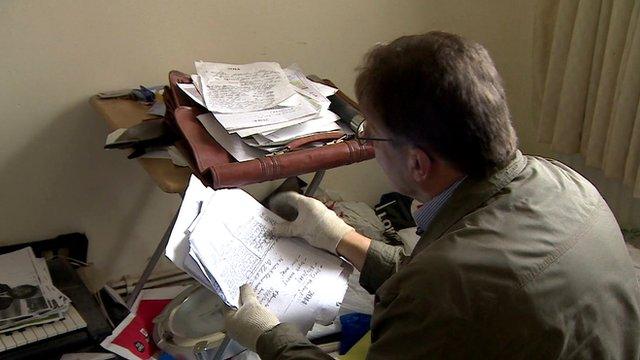Dying Matters week: Norwich hospital volunteers help end-of-life patients
- Published
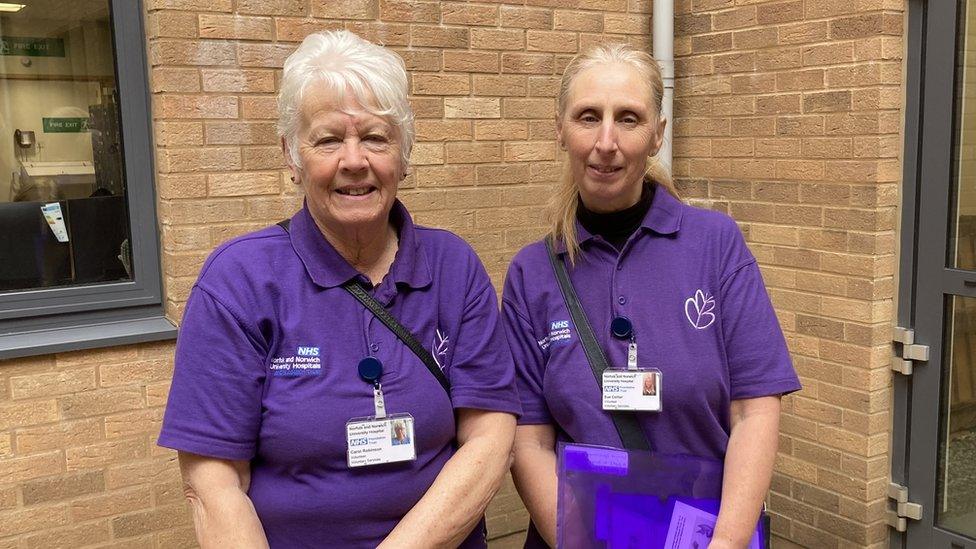
Carol (left) and Sue (right) are Butterfly volunteers at Norfolk and Norwich University Hospital
In hospitals across the country there are patients in end-of-life care that will never have a visitor before they pass away. However, at Norfolk and Norwich University Hospitals trust, a group of volunteers is trying to change that.
They are part of the Anne Robson Trust - a charity based in Stevenage that supported more than 5,000 patients in end-of life care last year.
The group, called "Butterfly Volunteers", have one simple message - "no-one deserves to die alone".
To mark Dying Matters Awareness Week, external, the BBC met some volunteers to see how they are helping people nearing the end of their lives.
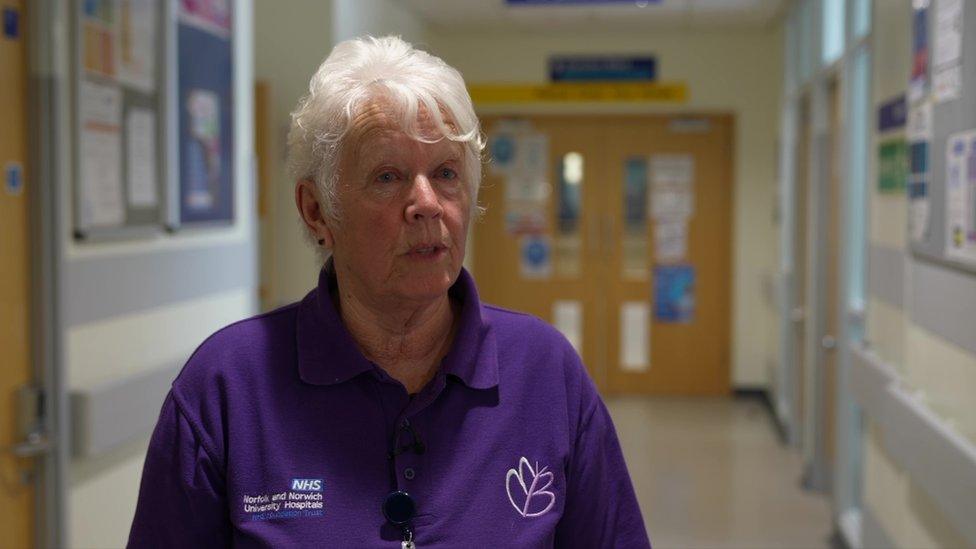
Carol Robinson has been with patients as they pass away
Carol Robinson, 75, has been volunteering at the Norfolk and Norwich University Hospital for two years, after seeing an advert in a local newspaper.
"A lot of people, unfortunately, have nobody to support them," she says.
Carol is one of a 30-strong team of Butterflies who work at the site.
"It's always a privilege for me to come in and that we're actually invited to sit with these people on their final journey."
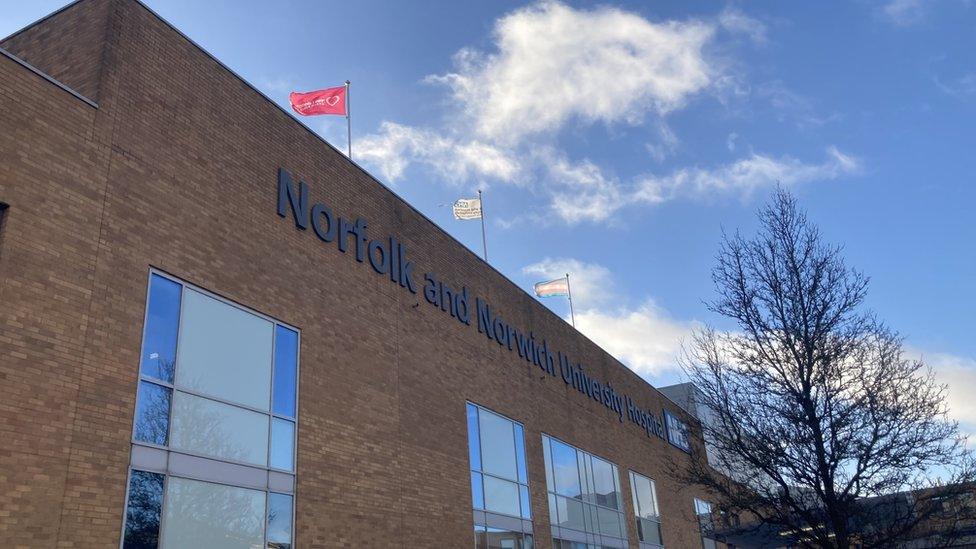
Norfolk and Norwich University Hospital is one of 11 hospitals partnered with the Anne Robson Trust
The health of patients on the ward is varied. Some are unresponsive, while others are entirely lucid.
Volunteers will visit a handful of patients a day where they sit, chat, read, or even sing with them. Each day, and each visit, is different.
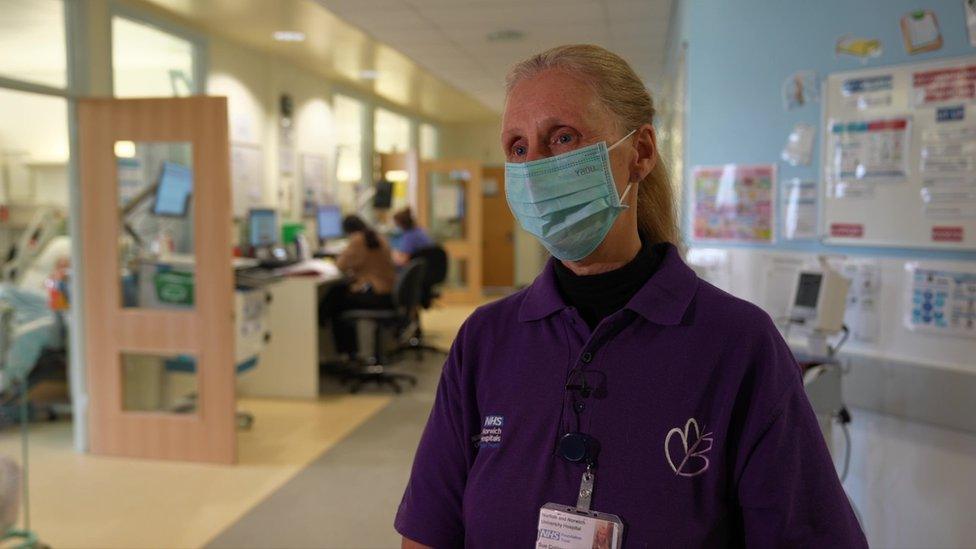
Sue Collier has been volunteering at the hospital for more than a year
For Sue Collier, 57, the work is immensely rewarding.
"I just wanted to give something back," she says.
"But actually, you get far more in return than you ever give."
Crisis can strike at any moment in palliative care - and occasionally the volunteers will be present as a patient dies.
For Carol, who has been with patients as they pass away, it is always a difficult time.
"It brings a little bit of lump to your throat, which is only natural," she says.
"But, we're prepared for that. That's why we're here, and you're thankful that you've actually been with them on the end of their journey."
'In turmoil'
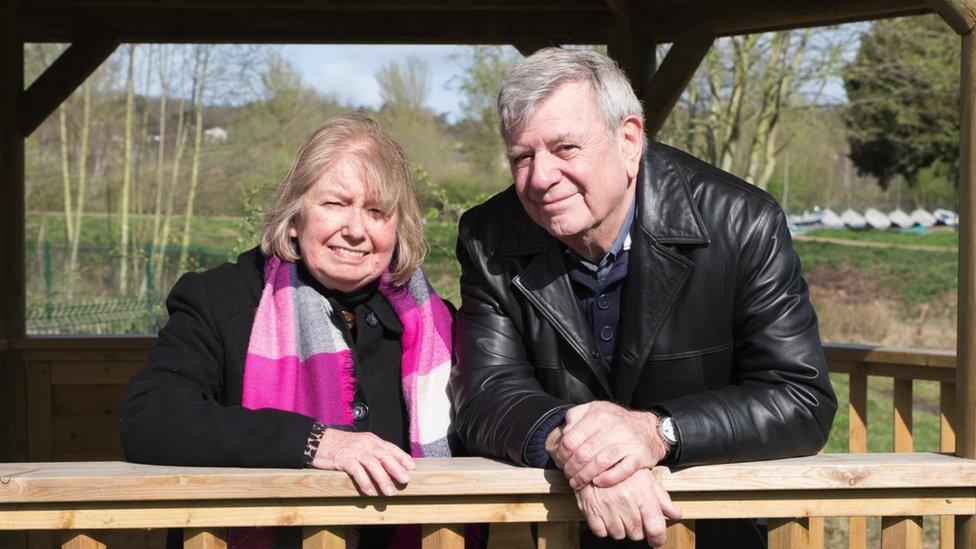
Butterfly volunteers helped Peter Harrison support his wife, Christine
Peter Harrison, 79, from Poringland in Norfolk, knows how comforting and reassuring end-of-life volunteers can be.
His wife Christine died last April at the age of 75.
In 2017, the grandmother and former teacher had been diagnosed with Progressive Supranuclear Palsy - a rare neurological condition affecting balance, movement, vision and speech.
Last year she suffered a stroke and was admitted to the hospital in Norwich.
Peter says in her last days, Butterfly volunteers would sit with her during the times he was unable to be there.
"Your whole life is in turmoil. Something has happened that is unexpected," he says.
"If I stayed too long in the hospital it would have been too much for me, being with her all that time, so it was a relief to know there was more than me talking to her, that's the important thing."
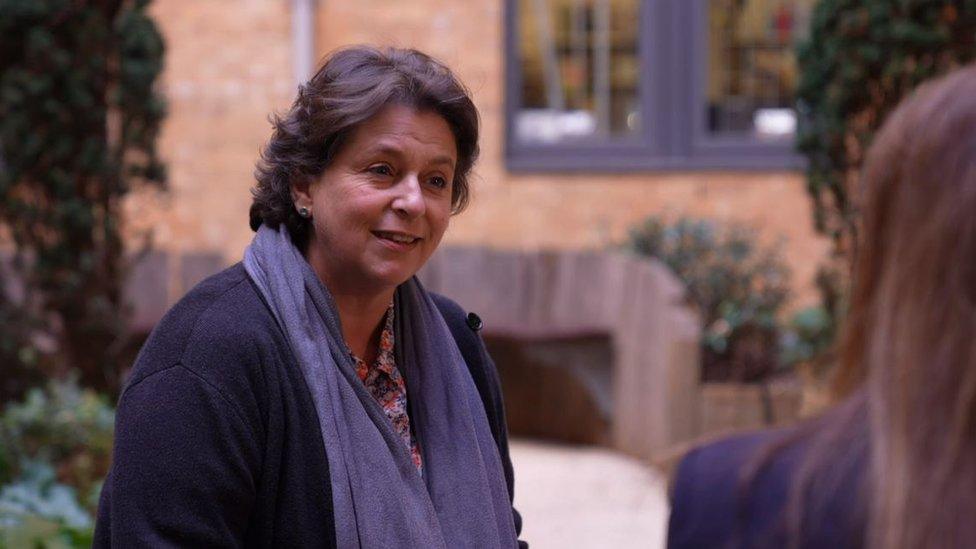
Liz Pryor founded the Anne Robson Trust in memory of her mother, Anne Robson, who died in 2010
In 2022, the Anne Robson Trust supported more than 5,000 dying patients, with volunteers visiting them more than 13,000 times.
It has Butterfly volunteers in 11 hospitals in England and provides telephone support for people nearing the end of their lives, and those struggling with the prospect of losing someone.
The charity's founder, Liz Pryor, says: "It's the saddest thing in the world isn't it? To think of somebody lying in a hospital bed and dying alone."
She says some people may wish to die alone - hence why the charity's ethos is "no-one deserves to die alone".
"Because if you don't, we'd like to make sure that there is someone there to be with you," she says.
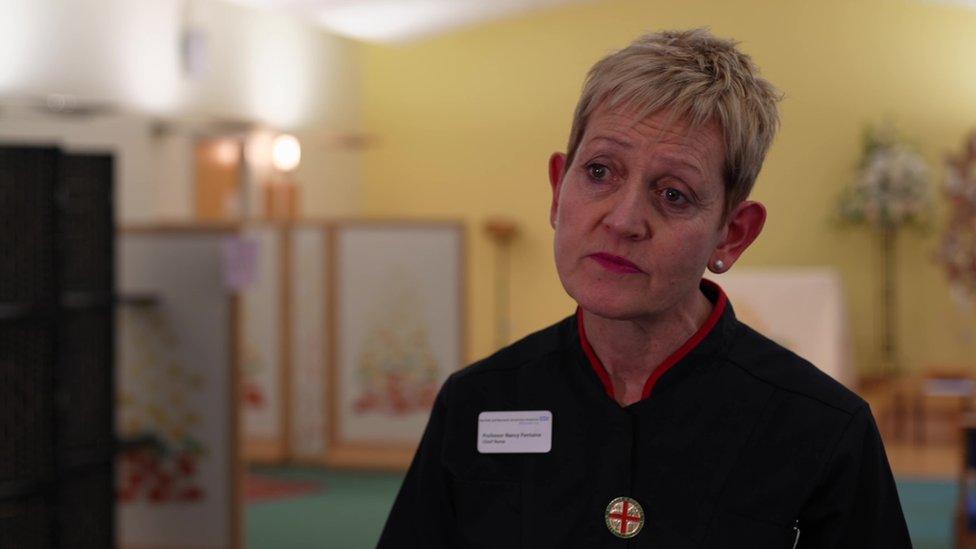
Prof Nancy Fontaine is a trained Butterfly volunteer
Prof Nancy Fontaine, the chief nurse at the hospital, is also a patron of the charity.
She says end-of-life care is part of everyone's role on the ward, but admits staff can often face competing priorities.
Volunteers are crucial to how patients are looked after, she says.
"It is a service that is adjunct and complimentary, but necessary," says Prof Fontaine.
"I am appealing to chief nurses across the country in every type of environment - you need this service, it is essential for patients and families, and nobody should ever be left on a ward in a side room waiting for somebody to sit with them in their last hours of need.
"It's the last contribution we can make for that patient."
Carol urges anyone looking to volunteer to give it a go.
"Hopefully, we've all got a little bit of love we can pass on to somebody else. That's really why I do it, and I'm glad."

- Published28 November 2022
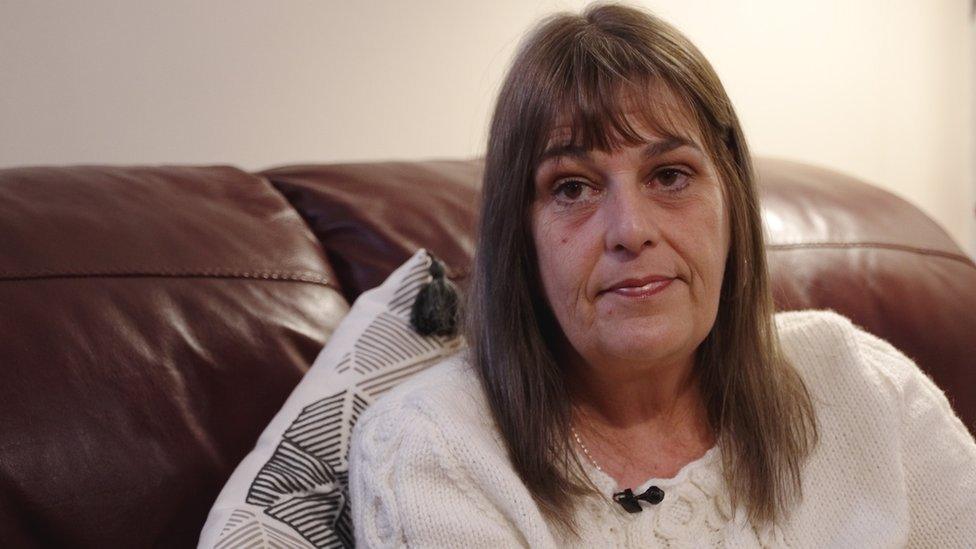
- Published7 September 2020
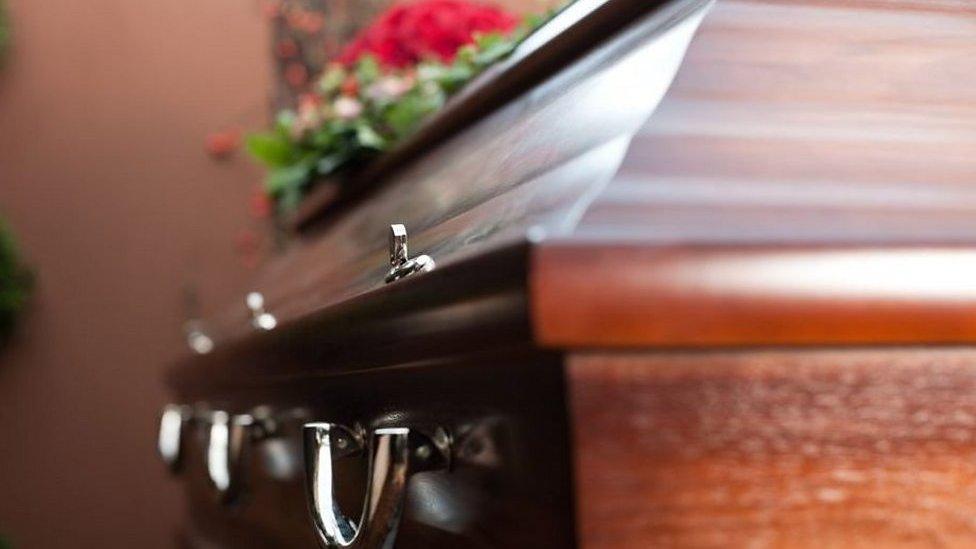
- Published30 November 2015
